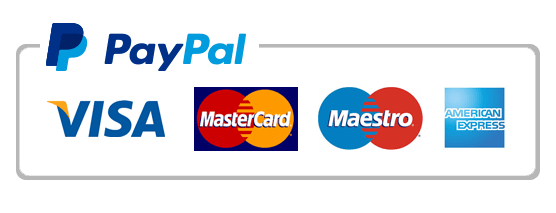Currently Empty: £0.00

In today’s rapidly changing work environment, career growth is no longer solely about performing your current job to the best of your ability. Continuous learning and development are critical to staying competitive, relevant, and adaptable. This is where Continuous Professional Development (CPD) comes in. Whether you’re a recent graduate or an experienced professional, CPD plays an essential role in advancing your career. In this blog, we will explore why CPD is a crucial part of career growth and how it helps professionals remain relevant, competitive, and confident in their fields.
1. What is Continuous Professional Development (CPD)?
Before diving into why CPD is so important, it’s essential to understand what it is. Continuous Professional Development (CPD) refers to the process of continuously developing and enhancing one’s skills, knowledge, and experience throughout a career. Unlike formal education, which typically has a fixed duration and curriculum, CPD is an ongoing, lifelong process.
CPD can take many forms, including formal training, workshops, seminars, and online courses. It also includes informal learning experiences like networking, mentoring, and self-reflection. The key takeaway is that CPD is not limited to just learning new skills but encompasses staying updated on the latest trends and advancements within your profession. In most industries, CPD is crucial for maintaining certifications and ensuring that professionals stay compliant with industry standards.
CPD can be categorized into two main types:
- Formal CPD: Structured activities such as accredited courses, workshops, seminars, and conferences.
- Informal CPD: More flexible learning through reading, discussions, or work-based learning experiences.
The importance of CPD cannot be overstated—it ensures that professionals remain competent, up-to-date, and competitive in their industries.
2. CPD Keeps You Competitive in the Job Market
As industries evolve, the skills and knowledge required to remain effective and relevant also change. This makes CPD crucial for maintaining a competitive edge in the job market. Employers want professionals who stay ahead of trends, learn new skills, and adapt to changes in the industry. Without CPD, individuals risk falling behind and becoming less attractive to potential employers.
The Evolving Job Market
The job market today is incredibly competitive. Professionals with a diverse set of up-to-date skills are in high demand, and employers actively seek individuals who are committed to their professional development. Whether you’re looking for a promotion, a job change, or even a career transition, CPD is one of the best ways to show potential employers that you’re adaptable, forward-thinking, and continuously improving.
The job market is constantly changing, with industries incorporating new technologies, methods, and best practices. Professionals who engage in CPD can demonstrate that they possess not only current knowledge but also a willingness to embrace new challenges and develop relevant skills. By actively participating in CPD activities, you position yourself as a valuable asset to employers and increase your chances of landing your next opportunity.
CPD as a Career Advancement Tool
In addition to keeping you competitive, CPD is a powerful tool for career advancement. Whether you’re aiming for a managerial role or moving into a new area within your industry, engaging in CPD demonstrates your commitment to growth and improvement. It’s a tangible way to show that you’re invested in expanding your skillset and are ready for new challenges.
3. CPD Enhances Skill Development and Knowledge
One of the most significant benefits of CPD is its focus on skill development and knowledge enhancement. The world is constantly evolving, and your skills need to evolve alongside it. The rapid pace of technological change, new methodologies, and industry standards makes it essential to continuously update your expertise.
Expanding Your Skillset
CPD gives you the opportunity to acquire new skills and refine existing ones. Whether it’s mastering new technologies, learning better communication techniques, or gaining insights into the latest industry trends, CPD ensures you’re always on top of your game. For example, a digital marketer might take courses on SEO or data analytics to keep up with the latest tools and trends in the industry. Similarly, healthcare professionals may attend workshops or seminars to learn about new medical procedures or technologies that enhance patient care.
By regularly participating in CPD activities, professionals not only gain new skills but also strengthen their existing capabilities, making them more versatile and valuable in their roles.
Staying Up-to-Date with Industry Trends
CPD also allows professionals to stay informed about the latest developments in their industry. Whether it’s a new regulatory requirement, emerging technologies, or industry best practices, staying updated is essential for making informed decisions and improving your performance. Professionals who are well-versed in the latest trends can offer innovative solutions, stay ahead of the curve, and become leaders in their field.
4. CPD Boosts Professional Confidence
Professional confidence is a critical factor for career growth, and CPD plays a key role in boosting it. As you continue to develop your skills and knowledge, you become more proficient in your role, which naturally increases your confidence in your abilities.
Mastering New Concepts and Tools
As you acquire new skills and knowledge through CPD, you gain a sense of accomplishment and expertise. This sense of mastery boosts confidence and enables you to tackle challenges more effectively. Whether you’re handling a difficult project, taking on a new responsibility, or dealing with a client, CPD prepares you to face these challenges with the confidence that you have the tools and knowledge to succeed.
Confidence in Job Performance
The more you learn, the more confident you become in your ability to perform your job at a high level. CPD helps professionals feel more competent in their roles, leading to better job satisfaction, improved work performance, and a greater sense of achievement. Confidence gained from CPD also helps individuals manage stress and handle complex tasks more effectively.
5. CPD Helps with Networking and Career Opportunities
Another significant benefit of CPD is the networking opportunities it provides. CPD events, such as conferences, seminars, and workshops, bring together like-minded professionals and industry experts. Networking in these environments can open doors to new career opportunities, collaborations, and even mentorship.
Building Professional Relationships
When you participate in CPD activities, you meet individuals who share similar interests, goals, and challenges. These networking opportunities can lead to valuable connections with peers, mentors, and industry leaders. Having a strong professional network can help you stay informed about job openings, industry developments, and new opportunities that may not be widely advertised.
Access to Career Opportunities
Attending CPD events and participating in professional organizations also provides access to exclusive job opportunities. Many employers value candidates who are actively engaged in CPD because it shows initiative and a commitment to personal growth. Moreover, networking at CPD events can introduce you to people who might offer valuable job leads, references, or collaborations.
6. CPD and Personal Career Satisfaction
CPD not only contributes to your professional growth but also enhances your personal career satisfaction. Continuous learning and self-improvement can lead to a more fulfilling and meaningful career. As you expand your skills and knowledge, you gain a greater sense of purpose and satisfaction in your work.
Increased Job Satisfaction
Engaging in CPD activities leads to a sense of accomplishment, which in turn increases job satisfaction. When you feel that you are constantly growing and achieving new milestones, your motivation and engagement with your job are enhanced. This can lead to a more enjoyable work experience, increased job retention, and better work-life balance.
Psychological Benefits
Additionally, CPD contributes to personal fulfillment by providing opportunities for self-reflection and self-improvement. Learning new concepts, expanding your knowledge, and mastering new skills can provide a sense of personal growth and achievement that is deeply rewarding.
7. How to Make CPD a Part of Your Career
To reap the benefits of CPD, it’s important to integrate it into your career plan. Here are some practical steps to make CPD a regular part of your professional life:
- Set CPD Goals: Identify the skills or knowledge areas you want to develop and set clear, achievable goals.
- Research Opportunities: Look for CPD courses, seminars, webinars, and workshops that align with your goals and professional interests.
- Track Progress: Regularly evaluate your progress and adjust your CPD activities as needed.
- Make Time for Learning: Schedule regular time for CPD activities, such as reading, attending events, or taking courses, to ensure it becomes a priority.
By actively planning and committing to CPD, you can ensure that it remains a vital part of your career development.
8. The Future of CPD in a Rapidly Changing Work Environment
As industries continue to evolve due to technological advancements and shifting work dynamics, CPD will become even more critical. The future of work will demand greater flexibility, adaptability, and a willingness to embrace new skills and technologies. CPD will play a central role in helping professionals keep pace with these changes.
Digital Transformation and CPD
The rise of remote work, digital platforms, and automation will lead to more online CPD opportunities, including virtual workshops, webinars, and e-learning modules. Professionals will need to embrace these digital learning formats to stay relevant in their fields.
Conclusion
Continuous Professional Development is essential for career growth, skill enhancement, and job satisfaction. Whether you are looking to stay competitive, gain new skills, or build a fulfilling career, CPD offers a structured approach to achieving your professional goals. By committing to ongoing learning and embracing the benefits of CPD, you can ensure that your career remains dynamic, rewarding, and aligned with industry demands.
Make CPD an integral part of your career strategy today and unlock new opportunities for growth, success, and satisfaction.





